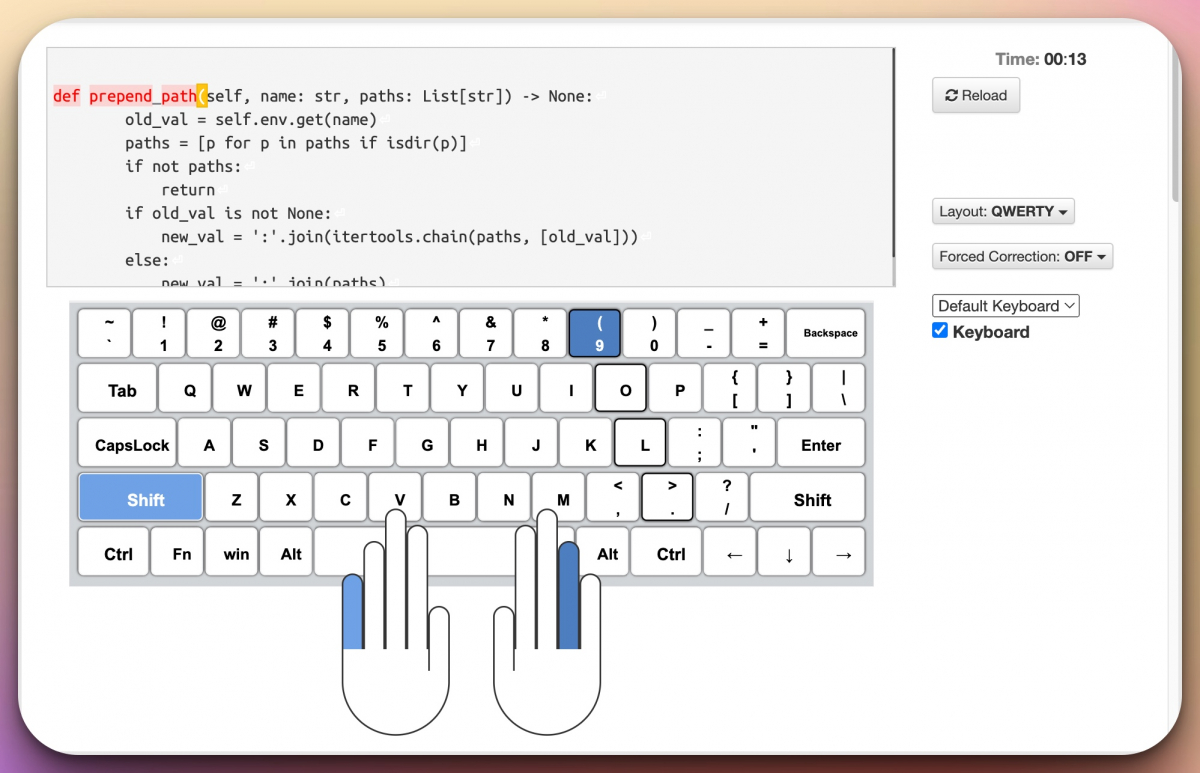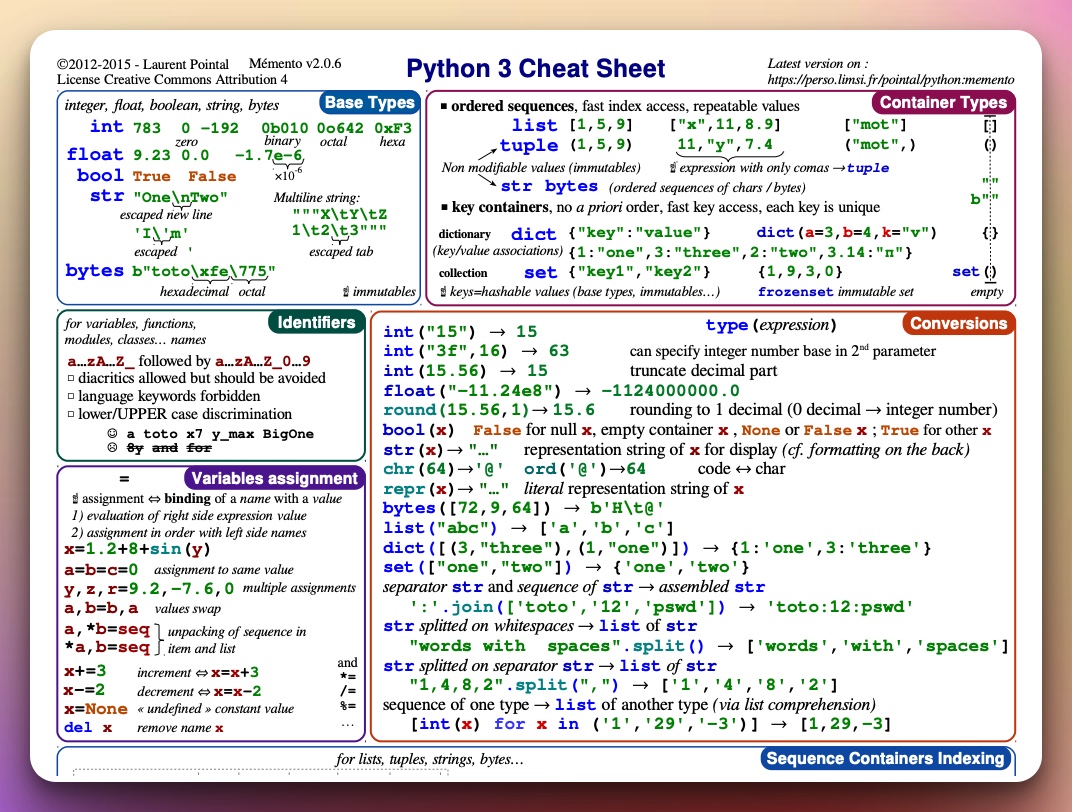Introduction
In my experience teaching Python, I've found that the challenges beginners face are often in the basics. It's not just understanding complex programming ideas, but simple things like typing well and remembering how to write a function correctly. Python is known for its easy-to-understand syntax, but that alone isn't enough to master the language.
Learning Python needs a steady and consistent approach. Regular, spaced learning sessions are much better than trying to learn everything at once.
Whether you're a student starting with programming, someone looking to change careers, or just exploring a new skill, Python is a great choice for a wide range of ages, from 13 to 60 years old. But before you start, it's important to know what you want to achieve with Python. Having clear career goals can make your learning more focused and effective. This way, you're not just learning Python; you're learning it in a way that fits your future plans.
Unexpected challenges from Beginners and Intermediates
When starting with Python, my students encounter several challenges that can impact their learning progress.
One of the most fundamental challenges is developing typing efficiency. It sounds trivial but it's usually more important than people think. Even in my job I see people with 5+ years of experience that have issues typing quickly.
Good typing skills are essential for coding, as they allow you to translate your thoughts into code more quickly and reduce the time spent on mechanical input. The faster you type, the faster you will be able to think.
To improve typing skills, I recommend using resources like speedcoder.net. This link is Python specific. Just 5 minutes a day of practice on this platform can significantly enhance your typing speed.
The UI will look like this: it's just 1 python function to write. Look at the timer and try to beat your time! Don't forget to use the correct keyboard layout.

In as little as two weeks, you could potentially double or even triple your typing speed in python . All that by building muscle memory, just like when learning the piano.
This increased efficiency not only speeds up coding but also makes the learning process more enjoyable and less frustrating. Your brain will thank you!
Another common challenge for beginners is memorizing Python's syntax. While Python is famous for its straightforward syntax, remembering the correct format for functions and commands still requires practice. This is where consistent learning sessions come into play. Regular practice helps in internalizing the syntax, making it second nature over time.
Having a cheat sheet containing the main syntax that you are going to face is also a great way to grasp knowledge. I would recommend this one, which is exhaustive:

You should download it here and print it with the A4 format and always have it on your desk. I promise you it will save you hours of google search and debugging. Even after years of experience, I still find myself looking at the cheat sheet from time to time.
As you navigate these initial challenges, it's important to remember that these are normal parts of the learning curve. With persistence and the right resources, overcoming those difficulties is not only possible but also a rewarding part of the journey into Python programming.
Key Difficult Concepts
In my experience, there are a few recurring difficult concepts that most of my students struggle with in Python. Understanding when to use 'for' loops versus 'while' loops and the importance of functions are among these common stumbling blocks.
1. For vs. While Loops:
- A 'for' loop is typically used when you know in advance how many times you need to iterate over something. It's often the go-to choice for iterating over items in a list, tuple, or other iterable objects.
- A 'while' loop is more appropriate when the number of iterations isn't known beforehand. It continues to execute as long as a certain condition remains true.
- In our courses at ChatCoding, we delve into practical examples that highlight the best scenarios for using each type of loop. Through these examples, students gain a clearer understanding of the appropriate applications for 'for' and 'while' loops.
2. The Importance of Functions:
- Functions in Python are crucial for organizing and reusing code. They allow you to encapsulate a set of instructions that can be executed multiple times throughout your program.
- Some students wonder why they can't just write code as is, without functions. The answer lies in efficiency and manageability. Functions make code more readable, easier to debug, and scalable.
- Our specific chapters on functions cover their syntax, how to define them, and their real-world applications. We provide numerous exercises and examples to ensure that our students understand not just the 'how' but also the 'why' behind using functions.
- Create an account here and find the specific chapter covering those issues.
In our curriculum at ChatCoding, we aim to address these and other issues that learners frequently encounter. By focusing on these key areas, we help students overcome common obstacles, enabling them to build a solid foundation in Python programming.
Algorithm Building and Problem-Solving
One of the most challenging yet crucial aspects of learning Python, or any programming language, is the ability to build algorithms and solve problems. An algorithm in programming is essentially a set of instructions designed to perform a specific task. This process often combines multiple key concepts and requires the ability to translate real-world problems into code – a skill at the heart of problem-solving in programming.
Understanding how to break down a problem, conceptualize the steps needed to solve it, and then translate those steps into efficient code is what sets apart successful programmers. It's not just about knowing the syntax or memorizing functions; it's about seeing the larger picture and using logical thinking to navigate through it.
For beginners, this aspect of programming can feel overwhelmingly difficult. It's important to remember that this is a normal part of the learning process. Building algorithms and solving problems is a skill that improves with practice. With each problem you encounter and work through, your ability to think algorithmically strengthens. The problems that once seemed insurmountable become more manageable, and the solutions come more quickly.
My conclusion
Approach programming with the mindset that it requires effort and is not inherently easy.
It is a marathon, not a sprint. Each new challenge is an opportunity to grow and improve. At ChatCoding, we emphasize this mindset and provide our students with progressively challenging problems to ensure they not only learn Python's syntax and structures but also develop strong problem-solving skills. This approach prepares them for real-world programming challenges, making them adept and confident programmers.
